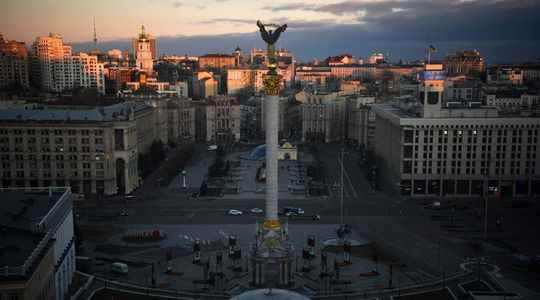Each day has enough trouble of its. Whereas tensions are growing between Ukraine and Russiaprompting the announcement of Western sanctions against Moscow on Tuesday, February 22, the French executive anticipates “contained” economic repercussions.
In any case, this is what the Minister of the Economy, Bruno Le Maire, assured before a senatorial committee on Tuesday evening: “The French economy is not very exposed”, France exporting only 7 billion euros per year to Russia, i.e. “barely more than 1% of French exports”. In the other direction, “we import less than 10 billion euros per year from Russia, it is less than 2% of French imports”, added the minister, just to calm things down.
Bercy’s services also ensure that they have made contact with the tricolor commercial networks installed in Russia, to sift through all the companies present and provide them with the necessary support. But on the other side of the border, in Ukraine, the situation is more “artisanal”. In Kiev, the atmosphere is still questioning the real consequences of this grip between the Russian hammer and the anvil of Western sanctions.
“Reassess the situation”
“Putin’s decision marked a turning point in the situation, it is act 2 after the first troop movements that we have felt for a few weeks. Within the French community, the situation was calm but the announcements have created a lot of anxiety and are pushing everyone to reassess the situation,” lawyer Bertrand Barrier, a partner at Jeantet and foreign trade advisor based in Kiev, told L’Express.
Chance of the calendar, many French people have left the country for a few days for the school holidays, but the majority of them are wondering. Should we go back, stay and for how long? “There are relatively few people based in eastern Ukraine since 2014, so activities are not immediately impacted and consumption continues. Ukraine even had a good year in 2021, particularly for agribusiness, IT services and metallurgy”, explains Bertrand Barrier.
So many sectors that could continue to run without too many constraints. However, with the war on the doorstep of the country, “there is a big risk for the business climate and investment. There will be a lack of confidence among companies”, warns the lawyer.
About 160 French companies are present in Ukraine, particularly in the banking sector (Crédit Agricole, BNP Paribas), agrifood (Bel, Lactalis, Bongrain), distribution, with the Mulliez galaxy (Auchan, Decathlon, Leroy Merlin) and the automotive (Renault and Peugeot have a 25% market share). With a lot of local production, France is therefore the first foreign employer in the country with more than 50,000 direct jobs.
Big contracts in separatist areas
To this must be added the large intergovernmental contracts, some of which were signed a few months ago. In May 2021, France and Ukraine had ratified four new agreements for a total amount of 1.3 billion euros. In particular, there is a major contract concerning Alstom, negotiated for a long time, providing for the sale of a hundred locomotives for nearly 900 million euros. An agreement partly guaranteed by the French Treasury.
Airbus has also obtained a symbolic market for its helicopters, and the Desautel group will manufacture 370 fire trucks (300 million euros). But what worries French diplomatic networks behind the scenes is the future of two development contracts planned in the east of the country, not far from the front line.
Indeed, Vinci, Eiffage and Razel-Bec had obtained permission to rehabilitate water stations in the capital, but also in the separatist region of Lugansk. What will become of these contracts, while the tanks are at the gates of the country? “There was a strong desire to develop these regions, the situation risks changing plans,” said Bertrand Barrier.
A final case also risks experiencing the same fate. On the shore of the Black Sea, at the port of Mariupol, in southern Donbass, the French group Egis, which specializes in infrastructure, was also to work on a new drinking water plant. A 64 million euro project, partly financed by the French State. The group was to supervise the studies and construction work. Present for more than twenty years in the country, Egis was also to work on public lighting and a trolleybus project. So many projects that made the group say that “the city of Mariupol is a key area for the company over the next few years”. The geopolitical situation could well decide otherwise.
